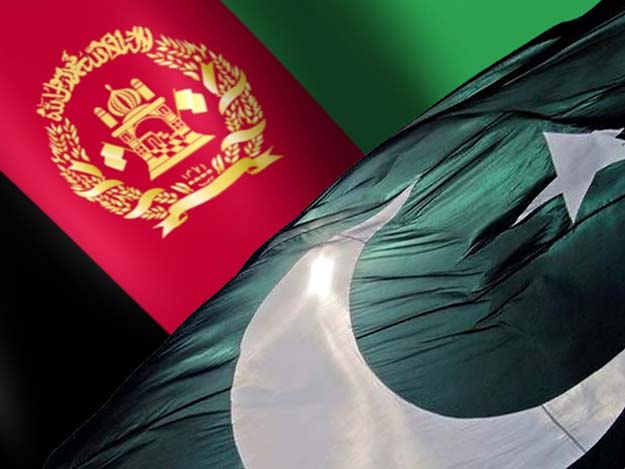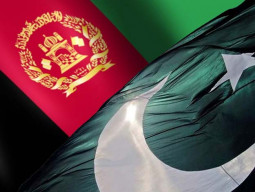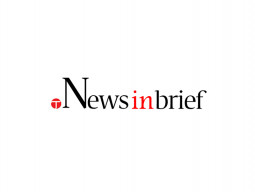
ISLAMABAD: The intelligence sharing agreement between spy agencies of Pakistan and Afghanistan has been under fire in Kabul since security officials of the two countries confirmed the signing of the draft.
At present the Afghan National Directorate of Security (NDS) and Pakistan’s Inter-Services Intelligence (ISI) have only inked a memorandum of understanding and a formal agreement has yet to be signed, however, some Afghan leaders, including Hamid Karzai and a section of the media have openly opposed the move.
A vast majority of those condemning the agreement had earlier accused Pakistan of not taking practical steps to encourage the Taliban to join the peace process. Afghan leaders and the media are right to call for more details of the MoU as they believe keeping people in the dark will create doubts.
Pakistan’s view
A sad aspect is that the Afghan parliament, leaders and the media have been actively debating the issue but in Pakistan, only a few newspapers wrote editorials and generally there is a unanimous opinion that it is a positive development.
Pakistan’s Foreign Ministry has also officially welcomed the MoU.
“The MoU will be helpful in combating terrorism. We have cooperation with Afghanistan in a number of fields and intelligence is one of them,” said Foreign Ministry Spokesman Qazi Khalilullah at his weekly press briefing on Thursday.
“The statements made on the issue were carried by media and are self-explanatory. I am not going to say anything further on that,” the spokesman said when he asked to share more details.
Political leaders and the media in Pakistan should also discuss whether the agreement is helpful for Pakistan or will it just benefit Afghanistan and its security agencies. Opposition parties too have a fundamental responsibility to raise such issues in Parliament. The National Assembly and the Senate have not yet been taken into confidence on Prime Minister Nawaz Sharif’s recent visit to Kabul where he publicly condemned the Afghan Taliban.
Across the border
The NDS and the Afghan Presidential Palace have defended the agreement with Pakistan saying it is aimed at boosting anti-terror cooperation between the two neighbours.
Hasib Sediqi, the NDS spokesman, also rejected Afghan media reports that ISI will train and equip Afghan intelligence personnel.
“Important issues have been mentioned in the MoU. The enemy has clearly been defined. It will look at where the threat is coming from and what threats are disrupting security in Afghanistan,” Sediqi said at a news conference on May 18. The recording of the presser was posted on the official Facebook page of NDS.
Ajmal Abedi, spokesman for President Ashraf Ghani, has said the two countries will exchange information with regard to the war against terrorism based on the document.
He clarified that there was nothing in the MoU that might be harmful for Afghanistan and that similar documents had been signed previously as well.
As Afghanistan witnessed a hue and cry over the deal, the Afghan media flashed a brief statement of former president Hamid Karzai who expressed “serious concerns” at the agreement and pushed the government to “scrap it immediately”.
Karzai’s criticism of the accord is contrary to his own commitment with Ghani to support and help his government. Karzai, who had bracketed Pakistan with the United States for what he claimed was an “imposing war on Afghans”, had also opposed Ghani’s decision to send army cadets to get military training in Pakistan.
Nevertheless, some senior Afghan leaders are in favour of the agreement and described it as positive development.
Chief of the Afghanistan Islamic Front Party, Pir Sayed Ahmad Gelani, said he “does not recognise Pakistan as Afghanistan’s enemy” and that both are “friends, brothers and neighbours” and should cooperate with each other.
Afghanistan’s Wulasi Jirga (National Assembly) has now summoned National Security Adviser Muhammad Hanif Atmar and NDS chief Rahmatollah Nabil to a meeting of the house internal security committee on May 24 to respond to the “concerns” of some lawmakers, according to Afghan media. TV channels quoted Parliamentary Speaker Abdul Rauf Ebrahimi as saying that the lower house of parliament will take a decision on the deal after the briefing.
Published in The Express Tribune, May 23rd, 2015.



































































COMMENTS
Comments are moderated and generally will be posted if they are on-topic and not abusive.
For more information, please see our Comments FAQ